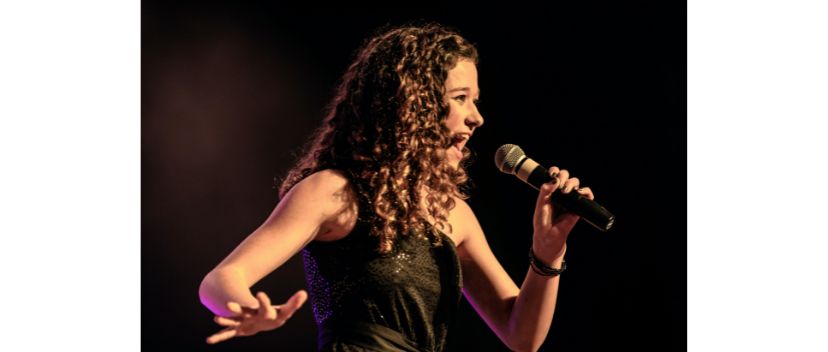Do you ever wonder why some singers seem to effortlessly transition from low notes to high…
Classical Singing: Unveiling the Beauty of the Voice

Classical singing, a world filled with emotion and power, is more than just hitting the right notes. It’s about conveying the words of a song with conviction and grace, making the audience feel every emotion embedded in the tune.
The Classical Voice: A Symphony of Emotion
The voice is our most personal instrument. When you hear a classical singer perform, you’re listening to their life’s work, their passion, and their soul. But what sets classical singers apart from their contemporary counterparts? It’s all about technique, formal training, and a deep understanding of music theory.
In classical singing, the voice is not just a sound, but a profound language. It’s about telling a story, sharing an idea, evoking emotions. Every note sung, every word uttered, is filled with meaning.
The Art of Classical Singing Technique
The cornerstone of classical singing is technique. Classical singing technique involves a precise control of the vocal tract, which helps to produce a clear, resonant sound. This style of singing requires rigorous formal training, often under the guidance of a seasoned voice teacher.
A classical singer has to master various techniques: breath control, pitch accuracy, diction, and more. They have to understand how their voice works, delving into the realm of voice science. This knowledge allows them to manipulate their vocal tract, producing different tones and styles.
But technical proficiency is not enough. A classical singer must also have a deep understanding of the art song – a form of classical music written for a soloist, often accompanied by a pianist. They need to interpret the written words, adding their unique touch and emotion to each performance.
From the Classroom to the Stage: The Journey of Classical Singers
Classical training often starts in school, where students are taught the basics of music theory. From understanding musical notes to learning different singing techniques, these budding artists spend hours honing their craft.
But the classroom is just the beginning. Many young artists also participate in programs designed to nurture their talent. These young artist programs provide them with opportunities to perform in front of an audience, helping them gain valuable stage experience.
The Versatility of Classical Singers: Opera and Beyond
One of the most popular forms of classical singing is opera singing. Opera combines music, drama, and spectacle, offering a unique performance experience for both the artists and the audience.
However, classical singers are not confined to the opera stage. They are versatile performers who can excel in various music genres. Some may choose to explore contemporary singing, blending classical technique with modern styles. Others might venture into musical theatre, bringing characters to life with their powerful voices.
More Than Just Classical: The Influence on Contemporary Music
While classical music might seem worlds away from pop or jazz, many contemporary singers have been influenced by classical singing techniques. Take the pop singer who uses classical breath control to sustain long notes, or the jazz musician who incorporates the rich tones of classical voice into their improvisation.
Moreover, contemporary music often borrows elements from classical music, creating a fusion of styles that appeals to a wide range of listeners. From folk to blues, the influence of classical singing is felt across various music genres.
The Power of Classical Singing: Connecting With the Audience
Above all, classical singing is about connecting with the audience. It’s about making them feel every emotion, from the joy of a lively tune to the sorrow of a melancholic song.
When a classical singer steps onto the stage, they’re not just performing. They’re sharing a part of themselves, expressing their emotions through their voice. And in doing so, they create a bond with the audience, a connection that transcends words.

Frequently Asked Questions about Classical Singing
What is classical singing?
Classical singing is a style of vocal performance that adheres to a centuries-old tradition of singing in the Western world. It involves using the voice as an instrument to express emotion, convey meaning, and tell stories through musical works written by composers such as Mozart, Puccini, and Verdi.
How is classical singing different from contemporary singing?
This style of singing emphasizes a clear, pure tone, precise intonation, and strict adherence to the written score. By contrast, contemporary singers often rely on more expressive, stylistic features such as improvisation and vocal effects like vibrato.
Can you apply classical singing techniques to other styles of music, such as pop or rock?
Yes, many classical singers use their training to perform in other genres of music, including pop, jazz, and musical theater. The techniques and practices taught in classical singing can help improve breath control, tone quality, and overall vocal health, making it easier to sing in a variety of styles.
Do I need to be a great musician to be a classical singer?
No, although having some background in music can be helpful. Singing is an art form that anyone can learn with practice and dedication. Many renowned classical singers started their musical careers with little formal training.
Do classical singers use their speaking voices differently than other singers?
Yes, a classical singer’s speaking voice is important in establishing proper breath support and clear diction while singing. Many classical teachers emphasize the connection between speaking and singing, teaching students how to use their speaking voice to support and enhance their singing technique.
How important is breathing to classical singing?
Breathing is an essential part of this singing technique. Proper breathing helps support a steady, controlled airflow that allows for clear projection and tone quality. Singers learn specialized techniques to improve their breathing, such as diaphragmatic breathing and controlled exhalation.
What kind of training and education do I need to become a classical singer?
Many classical singers start their training in high school or college choirs, where they can learn basic vocal techniques and music theory. Some go on to study at universities or conservatories, where they can receive more intensive training. A good classical singing teacher can also provide helpful training and guidance.
Can anyone become a professional classical singer?
Becoming a professional classical singer requires dedication, hard work, and talent. It can take years of practice and study to develop the skills and artistry necessary to succeed in a competitive field. However, with the right training and opportunities, anyone with the passion and drive to pursue a career in classical singing can achieve their goals.
Can I make a career out of only performing classical music?
Yes, many classical singers enjoy successful careers as solo performers or members of opera companies, choirs, and other musical ensembles that specialize in classical music. Some also teach classical singing at universities, conservatories, and private music schools.
Is classical singing still relevant in contemporary society?
Yes, this style of singing continues to be a vibrant and important part of the performing arts. Many contemporary singers and musicians draw inspiration from classical vocal techniques, and classical performances and recordings remain popular around the world. Despite the popularity of other forms of music, the beauty and tradition of classical singing continues to inspire and enchant audiences of all ages.
The Final Note: Embracing the World of Classical Singing
Classical singing is a beautiful art form that combines technique, emotion, and storytelling. It’s a journey that requires dedication, passion, and a love for music. But the reward is worth it – the chance to touch people’s hearts with your voice, to make them feel something through your performance.
So why not give classical singing a try? Whether you’re a beginner or an experienced singer looking to expand your repertoire, there’s always something new to learn. Who knows? You might just discover a new passion, a new voice within you waiting to be heard.
Remember, every great classical singer started somewhere. Maybe it’s time for you to start your journey. After all, the world is always ready for more beautiful music.



